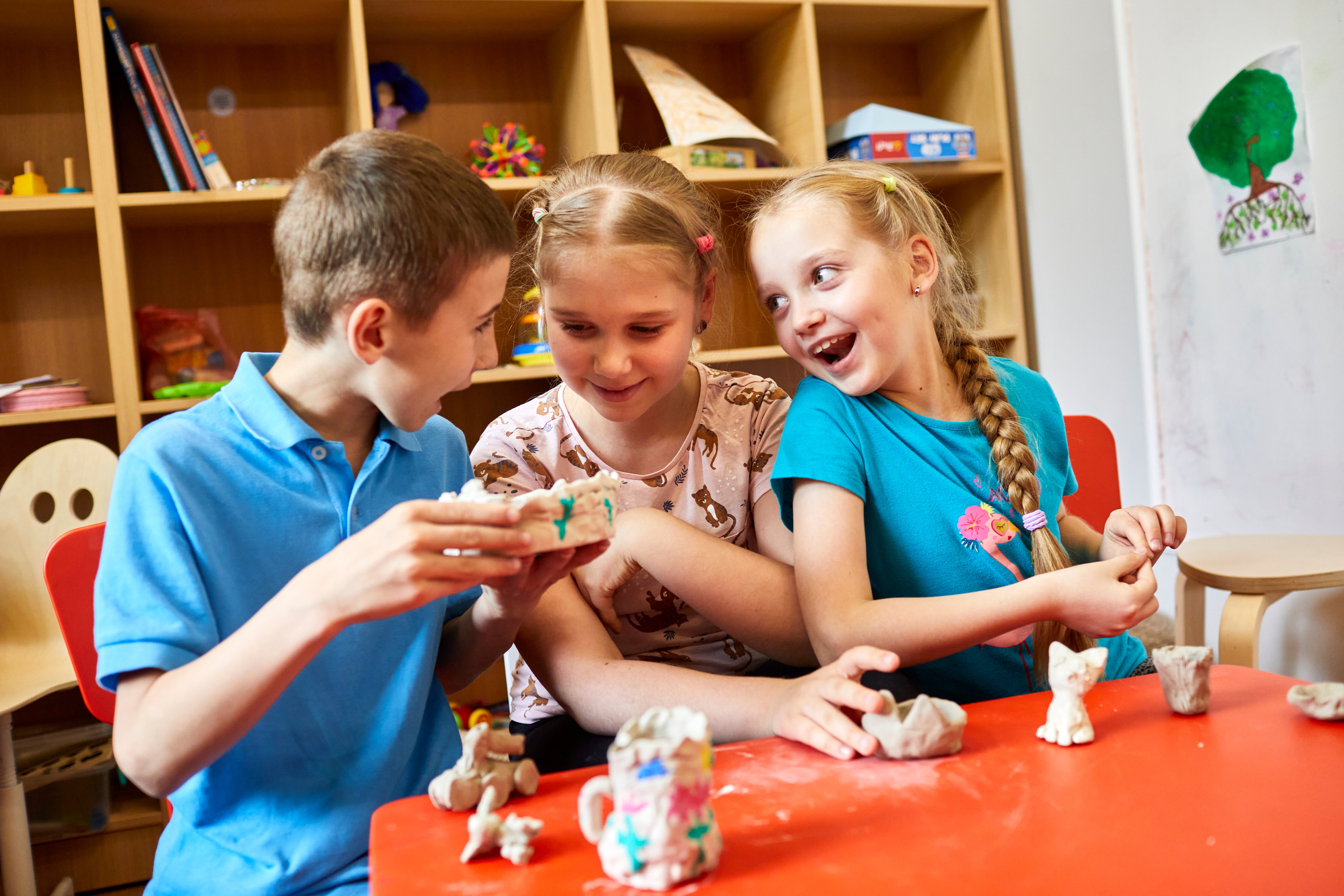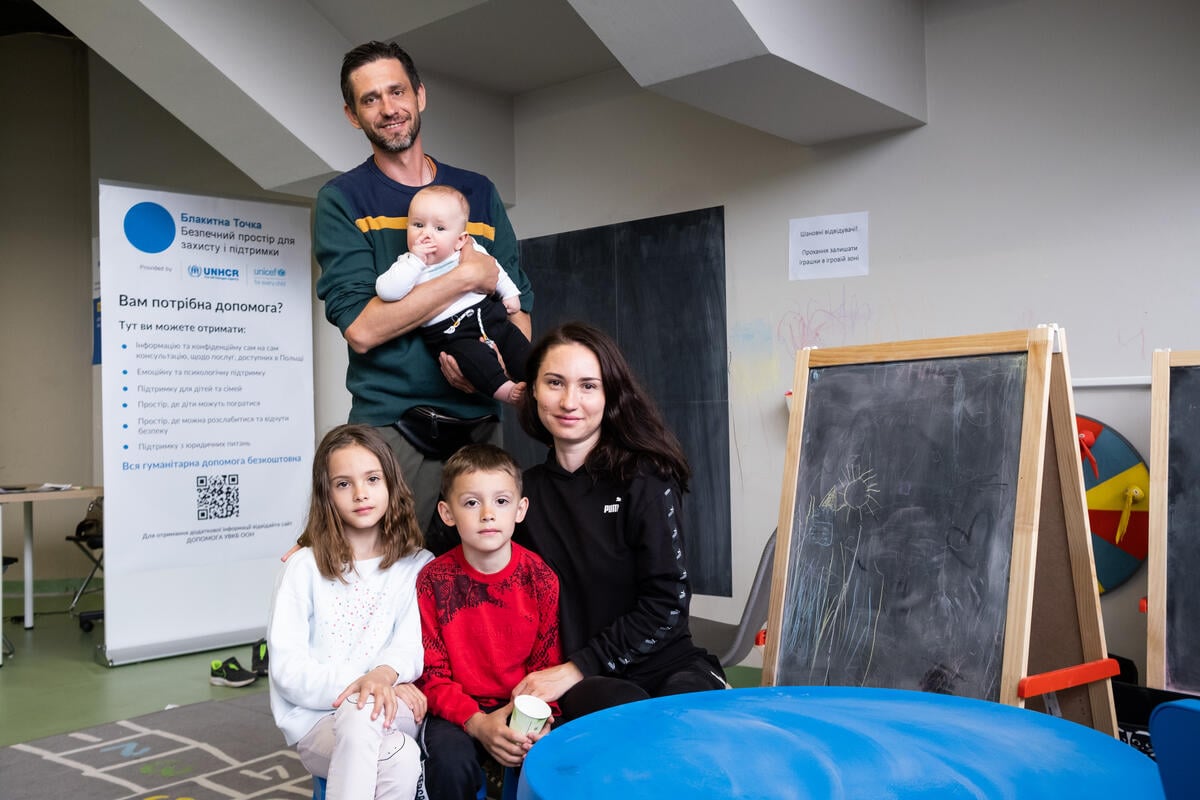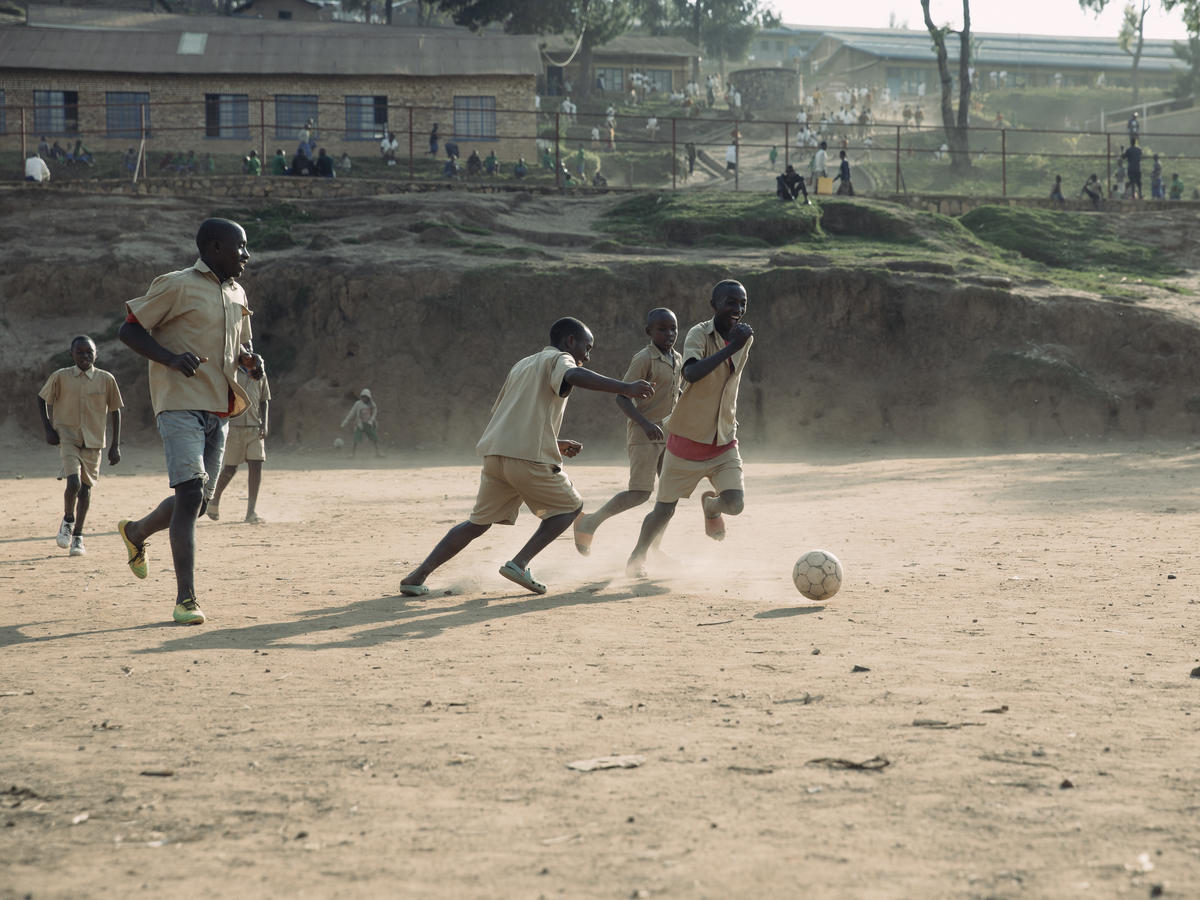Young Australians get Streetwize about refugees
Young Australians get Streetwize about refugees

CANBERRA, Australia (UNHCR) - "They shouldn't be here in the first place. None of this would have happened if they didn't come to Australia." It was comments like this from an Australian student that prompted the creators of "The Other Side" at Streetwize Communications to create an educational comic strip to inform young people about refugee and asylum-seeker issues.
Streetwize Communications is a non-profit group specializing in communicating social issues to young people and other hard-to-reach groups. For more than 19 years, Streetwize has produced entertaining, relevant and accessible publications on issues such as the law, health, drugs, alcohol and violence. But the recent comic on refugees, "The Other Side", has become their fastest-moving publication ever. It has also been used as a catalyst for an anti-racism workshop developed by eight rural schools from the Queanbeyan School Education Area in New South Wales.
Streetwize originally set out to write an easy-to-understand information booklet for refugees and asylum seekers arriving in Australia. But in the wake of the Tampa episode - in which hundreds of shipwrecked asylum seekers were rescued by a Norwegian freighter in the Indian Ocean in 2001 - researchers found that there was a greater need to dispel the common myths young people held about refugees and asylum seekers.
Liz Skelton, General Manager of Streetwize, noted, "Myths believed by young people included that being a refugee is illegal, refugees are dangerous, and that the number of refugees accepted in Australia far exceeded the actual figure."
Streetwize set out to tackle these misconceptions in a non-judgemental and entertaining way. It consulted with key community and advocacy groups in the field and spoke to over 200 young people from a range of backgrounds, including young refugees.
Researchers found that while young Australians responded in both a sympathetic and hostile manner to issues raised in focus groups, the major problem encountered was that the participants had little or no factual knowledge to support their opinions.
Opinions ranged from "they're coming here to overpopulate our country," to "everyone in Australia is from somewhere else, unless they're Aboriginal. We came on boats too."
"One of the most widely-held myths was that Australia is inundated with asylum seekers," said Skelton. Only two out of 50 people interviewed guessed anywhere near the correct number of asylum-seeker arrivals in Australia, which was 5,870 for the 12-month period from 1999-2000. Overwhelmingly, people believed the number to be much larger, with guesses of up to "about 10 million," Skelton said.
Research also showed that while young people got most of their information from the media, they perceived much of the coverage as biased. "It's not fair coverage. They only show you one side," and "they make Muslims look less than animals" were just some of the comments in the focus groups. Others said they were influenced by what their parents thought.
Some of the refugees who participated allowed the comic's creators to use aspects of their own stories, making the comic a realistic depiction of the problems young refugees face when they encounter a miseducated public in their new homeland.
The comic follows the story of Yasmeen, a young refugee from Iraq, trying to fit in with her new Australian friends. Yasmeen tells of her family's persecution, escape, survival, detention and eventual release in Australia in order to counter claims made by her classmates that she could be a terrorist.
The comic helps to dispel myths about refugee and asylum-seeker status by also profiling immigrants from the former Yugoslavia and the Democratic Republic of the Congo with both offshore and onshore refugee visas and by providing illustrated facts and statistics on refugee and asylum seekers worldwide.
"The Other Side" has been very well received, with over 73 percent of respondents to the feedback form rating the resource as an excellent tool for communicating issues about refugees and asylum seekers. As one respondent to the evaluation survey said, "Your publications are usually high quality but this touches the core. I'm up here in the redneck heartland and this story needs telling."
Streetwize's approach to resource development, along with the comic style, has been independently evaluated and shown to be an extremely effective way of reaching diverse groups, "particularly those who are often excluded by traditional media and communication channels or have low literacy skills," Skelton said.
The comic has also inspired an anti-racism workshop developed by eight rural schools in New South Wales during 2004. Students were encouraged to respond to issues raised in "The Other Side" by formulating their own scripts and scenes and enacting similar scenarios.
Monaro High School teacher Mark Friend, one of the teachers involved in the programme, said it was developed "to provoke thought and discussion" about issues in the media. His students have now performed their workshop three times. Audiences are encouraged to interact, intervene and suggest different ways to respond to issues raised in the play. The aim is to encourage people to move away from the preconceived and often negative ideas many people have about refugees.
Students are also encouraged to consider the sources of common misconceptions and attitudes. Friend said that in his class, news media had played a major role in shaping the opinions of students.

Leigh Cumins, a Year 11 student at Crookwell High School, agreed: "In the workshop we felt our experience of racism stemmed from stereotypes and taking on ideas represented in the media, more through other people's ideas and opinions rather than through direct experience with refugees," she said. Reflecting on her experience at the workshop and that of her classmates, she said, "Next time we watch a TV interview, we can perhaps view it from both sides."
Friend said both the comic and the workshops are a fun way of provoking more thought about refugee issues and racism more broadly. The strategy, he said, is to "hide the pill in the danish."
By Kate Michely and Ariane Rummery
UNHCR Australia









